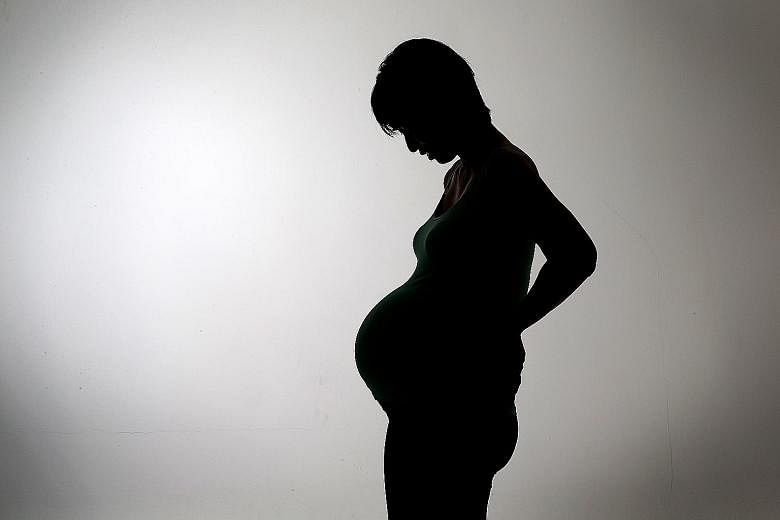Fever during pregnancy, especially in the second trimester, is linked to a higher risk that the baby will be diagnosed with autism spectrum disorder, researchers said last week.
Three or more fevers after 12 weeks of gestation may be linked to an even greater risk of autism.
The study by researchers from Columbia University's Mailman School of Public Health adds support to the theory that infectious agents that trigger a pregnant woman's immune response may disrupt the brain development of the foetus and lead to disorders such as autism.
Associate Professor Mady Hornig, director of translational research at the school's Centre for Infection and Immunity, said: "Fever seems to be the driving force here", not the infection itself.
She said fever can be part of the body's immune response to an infection and molecules produced by a mother's immune system may be crossing into the baby's neuro- logical system at a critical time.
The research, published in the journal Molecular Psychiatry, comes at a time when the scientifically discredited theory that some childhood vaccines cause autism has gained new attention.
US President Donald Trump has promoted this myth, energising some anti-vaccine groups.
Some families say their children developed autism after vaccinations. The timing is a coincidence, however; symptoms of autism typically become clear at about two years of age, which is the age when children get certain vaccines.
The study of fever during pregnancy adds to evidence that genetic and environmental factors influence the risk of autism well before children start showing symptoms.
Other research has tied vitamin D deficiencies during pregnancy to an increased risk of autism, and brain activity in six-month-olds can help predict their likelihood of being diagnosed at two years old.
Some studies have found a link between a father's age at conception and a child's chance of developing autism.
The new study looked at 95,754 Norwegian children born between 1999 and 2009, identifying 15,701 children whose mothers said they had fevers at some point in their pregnancies. Among them, 583 had children later diagnosed with autism spectrum disorder.
Prof Hornig said the data was gathered during the pregnancies and shortly after birth, so the "recall bias" of the mothers was minimised.
The study found that women who had one or two fevers during their pregnancies were 1.3 times more likely to have a child eventually diagnosed with autism spectrum disorder. Three fevers doubled the risk, although the number of cases was too small to be considered statistically significant.
Acetaminophen, the drug most commonly taken to reduce fever, had no significant impact on the rate of autism spectrum disorder, the researchers found, though the number of women who reported using the medication was small.
Prof Hornig said more research into inflammation and pregnancy was needed.
"What I want to know is the mechanism. I want to understand how this inflammation may relate to autism spectrum disorder," she added.
THE WASHINGTON POST

